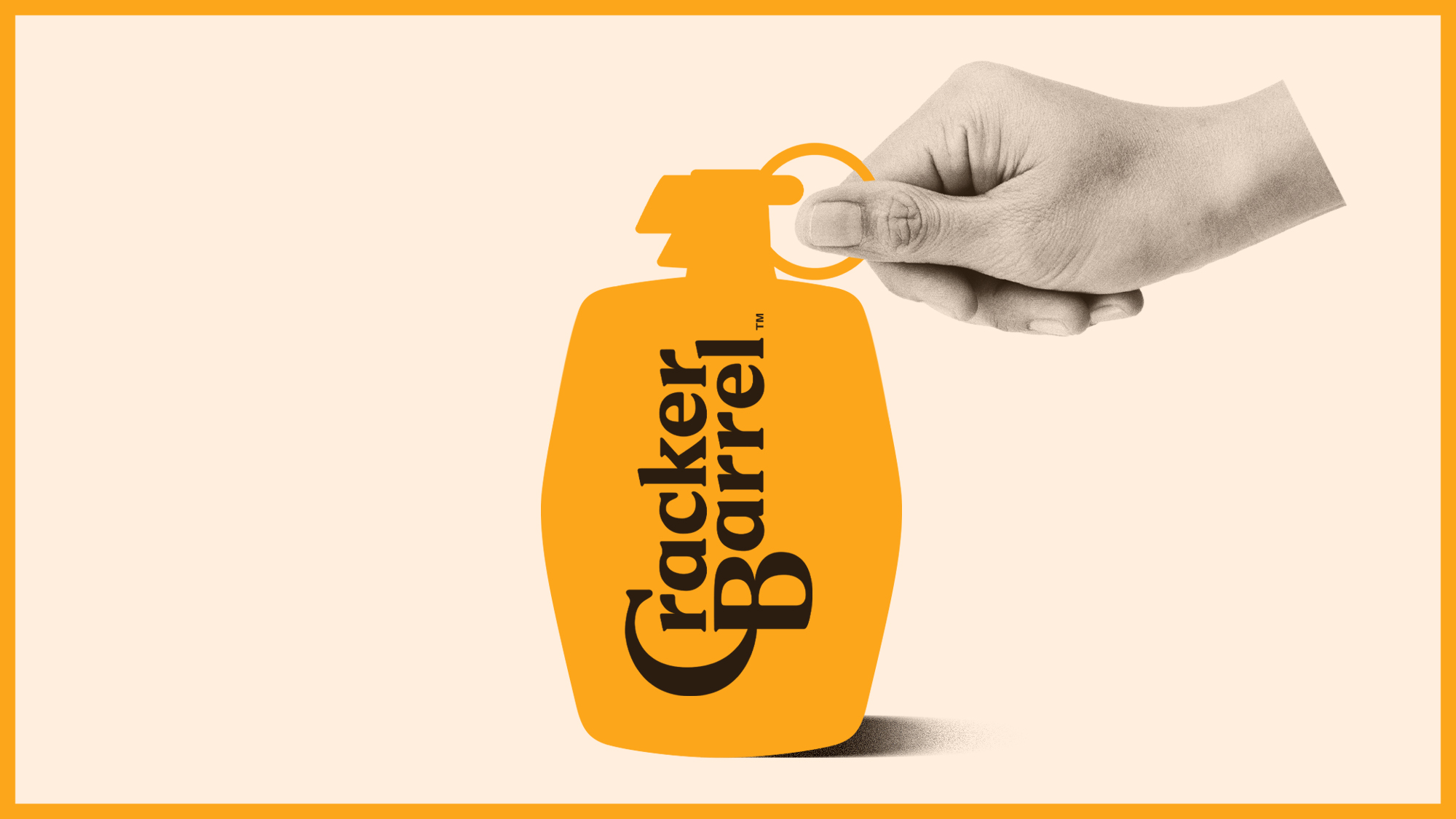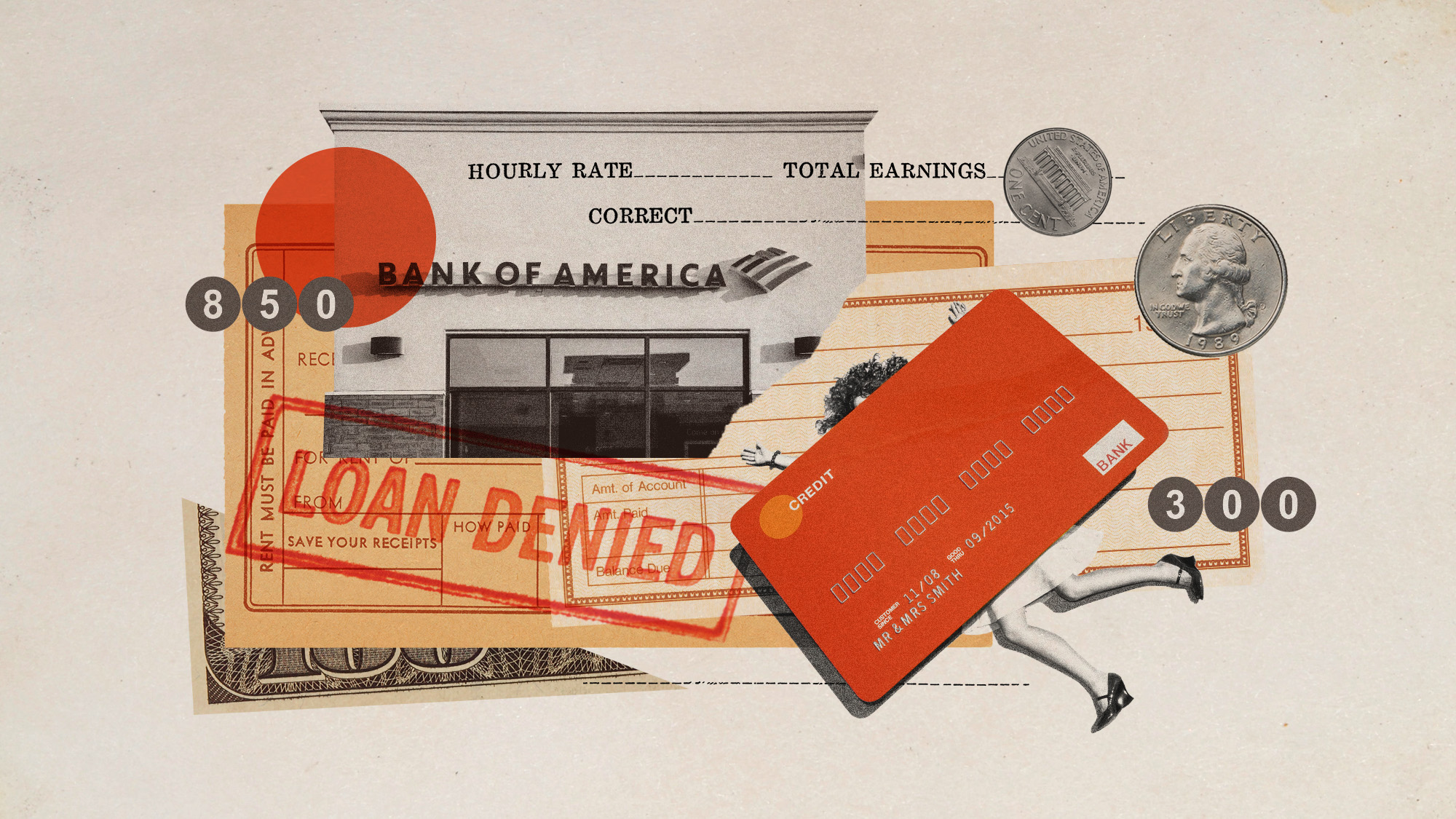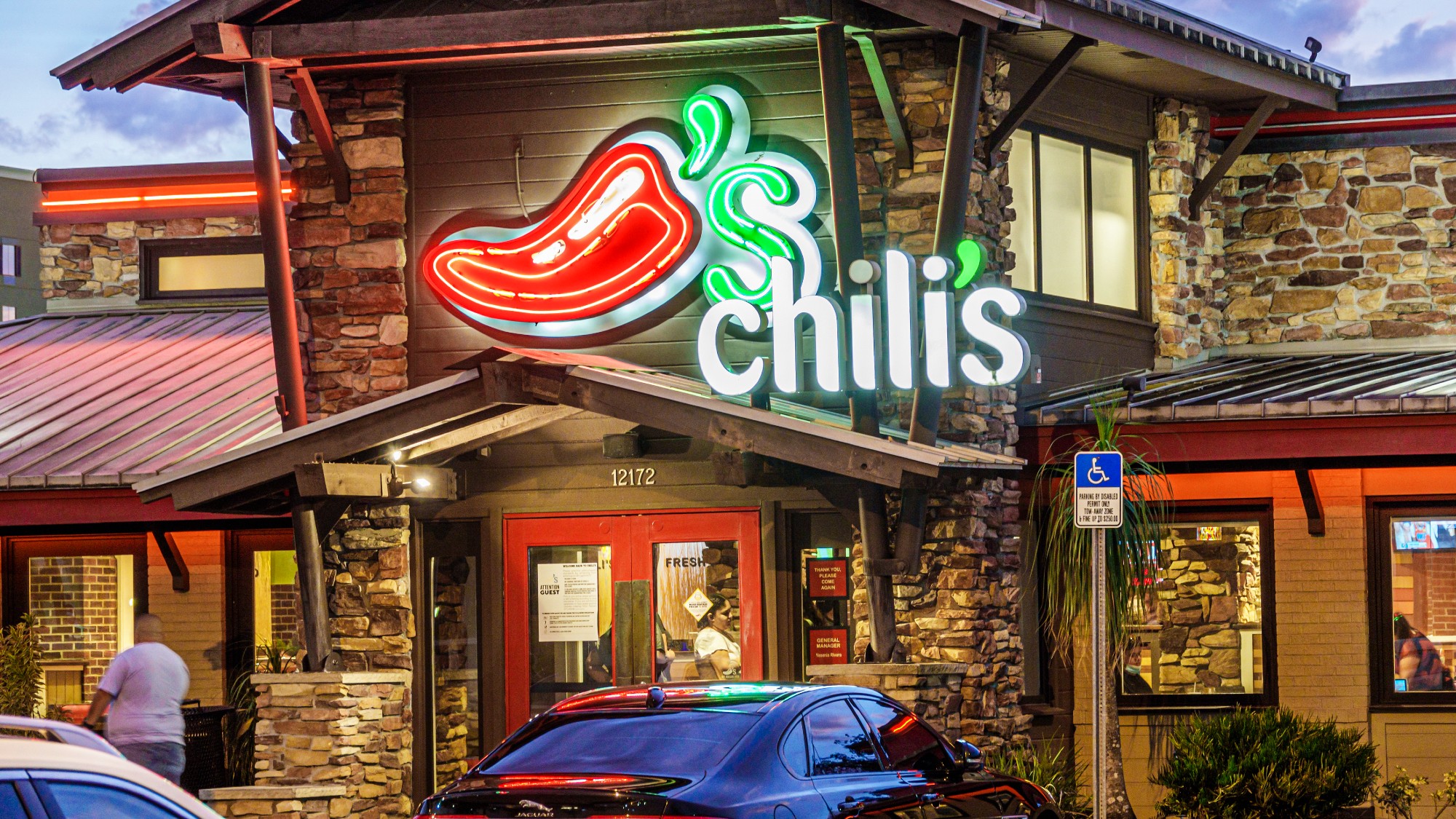Cracker Barrel crackup: How the culture wars are upending corporate branding
Is it 'woke' to leave nostalgia behind?


A free daily email with the biggest news stories of the day – and the best features from TheWeek.com
You are now subscribed
Your newsletter sign-up was successful
For America's big brands, there is little profit in the culture wars: It is simply too easy to lose customers by taking sides in the country's political debates. But as Cracker Barrel is finding out, sometimes those clashes cannot be avoided.
Cracker Barrel, the country-flavored restaurant chain, "shed almost $100 million in market value" this week after announcing a new logo decried by conservative commentators as "woke," said CBS News. The new branding dropped the old imagery of an "overall-clad man leaning against a barrel" in favor of a "cleaner logo" simply featuring the brand's name. (The chain's rustic interior decor has also been modernized.) Backlash ensued. "WTF is wrong with @CrackerBarrel??!" said Donald Trump Jr. on X. Cracker Barrel "must be broken," said conservative activist Christopher Rufo. "Our values haven't changed," the company said in a statement. Why all the controversy? In "normal times," branding changes would pass mostly unnoticed, said strategist Kelly O'Keefe, "but these are not normal times."
'Risk of alienating customers'
"Marketers are walking a tightrope," said Digiday. Brands like Target and Bud Light have "served as poster children" for the dangers — right-wing activists targeted Bud Light for partnering with transgender influencer Dylan Mulvaney in its marketing, while lefties boycotted Target for abandoning its diversity efforts. (Don't forget the recent Sydney Sweeney-American Eagle brouhaha.) While brands "still need to be culturally relevant" to attract consumers, the dangers are more apparent than ever. Getting caught in a political backlash "could impact your bottom line" at a time the economy already appears to be faltering, said Kai Deveraux Lawson, the CEO of Valerie creative consultancy.
The Week
Escape your echo chamber. Get the facts behind the news, plus analysis from multiple perspectives.

Sign up for The Week's Free Newsletters
From our morning news briefing to a weekly Good News Newsletter, get the best of The Week delivered directly to your inbox.
From our morning news briefing to a weekly Good News Newsletter, get the best of The Week delivered directly to your inbox.
The "ever-present risk of alienating customers" means brands have increased incentive to "play it safe," said the Financial Times. "People are just leaning back, particularly our major clients," said one advertising executive. Companies are worried about being branded "woke" by conservatives, and fear "scrutiny by regulators" under the Trump administration. The result is that the culture wars are "remaking advertising."
'Painfully generic and boring'
Political activists are "looking for an excuse to brand business decisions as politically or socially hostile," said the University of Pennsylvania's Jill Fisch to The New York Times. Cracker Barrel has walked that line for a long time: It was widely seen as a "white-coded establishment that aligned with conservative social norms," said the Times, but more recently provoked a conservative backlash as it "embraced Pride celebrations." If a brand is "willingly or unwillingly" associated with a political perspective, "you disappoint people when you change," Fisch said.
Cracker Barrel's new branding "doesn't really qualify as 'woke,'" said Jim Geraghty at the National Review. It is just "painfully generic and boring." And it misses the point: "Cracker Barrel isn't supposed to be 'modernized.'" It is a chain whose branding has "always included an element of nostalgia." The company may want to attract new customers, but the risk in any rebrand is that changes will "drive away the existing customers who liked the product just the way it was."
A free daily email with the biggest news stories of the day – and the best features from TheWeek.com
Joel Mathis is a writer with 30 years of newspaper and online journalism experience. His work also regularly appears in National Geographic and The Kansas City Star. His awards include best online commentary at the Online News Association and (twice) at the City and Regional Magazine Association.
-
 Corruption: The spy sheikh and the president
Corruption: The spy sheikh and the presidentFeature Trump is at the center of another scandal
-
 Putin’s shadow war
Putin’s shadow warFeature The Kremlin is waging a campaign of sabotage and subversion against Ukraine’s allies in the West
-
 Media: Why did Bezos gut ‘The Washington Post’?
Media: Why did Bezos gut ‘The Washington Post’?Feature Possibilities include to curry favor with Trump or to try to end financial losses
-
 Why is pizza in decline?
Why is pizza in decline?In the Spotlight The humble pie is getting humbler
-
 Tariffs have American whiskey distillers on the rocks
Tariffs have American whiskey distillers on the rocksIn the Spotlight Jim Beam is the latest brand to feel the pain
-
 Texas is trying to become America’s next financial hub
Texas is trying to become America’s next financial hubIn the Spotlight The Lone Star State could soon have three major stock exchanges
-
 From candy to costumes, inflation is spooking consumers on Halloween this year
From candy to costumes, inflation is spooking consumers on Halloween this yearIn the Spotlight Both candy and costumes have jumped significantly in price
-
 Gen Z is facing a credit score crisis
Gen Z is facing a credit score crisisIn the Spotlight The average Gen Z credit score has dropped three points in 2025
-
 Job hugging: the growing trend of clinging to your job
Job hugging: the growing trend of clinging to your jobIn the Spotlight People are staying in their jobs longer than ever
-
 How is Chili's saving casual dining? Could others follow?
How is Chili's saving casual dining? Could others follow?Today's Big Question Value and TikTok virality bring in the diners
-
 Switzerland could experience unique economic problems from Trump's tariffs
Switzerland could experience unique economic problems from Trump's tariffsIn the Spotlight The current US tariff rate on Switzerland is among the highest in the world
